The first generation of Prince (THP) engines features variable cam timing on the intake cam. This means that it can be advanced or retarded based on what is requested by the ECU calibration software. Newer engines like THP200 feature variable cam timing on both cams.
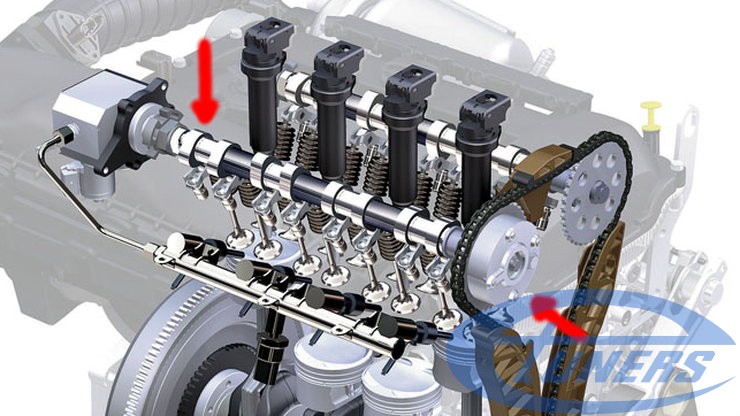
THP (Prince) engine cam shaft and variable cam timing mechanism – you can see the cam phaser to the right of the camshaft
How it works
Oil pressure from the oil pump goes into a solenoid valve on the engine block. This valve controls the oil pressure that reaches the cam phaser. The cam phaser is the adjusting mechanism which controls intake cam timing. The cam timing changes depending on the oil pressure inside the cam phaser.
The whole system after the cam oil pressure solenoid valve is purely mechanical. There are no pressure sensors providing feedback about what goes on into the cam timing mechanism with regards to oil. Which means it can cause undetectable trouble when something malfunctions.
If you want to read more on the system, from the people who design and produce it, you can check Delphi:
http://www.delphi.com/manufacturers/auto/powertrain/gas/valvetrain/vcp
Problem 0 – Stuck or malfunctioning oil control solenoid
The solenoid valve gets contaminated with dirt that accumulates from the oil residues over time. This leads into the system getting stuck and feeding less or more pressure into the camshaft. This valve sits next to the hydraulic chain tensioner – intake side.
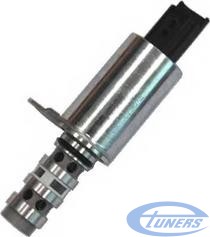
This is the solenoid valve that adjusts oil pressure to the intake cam shaft variable timing mechanism
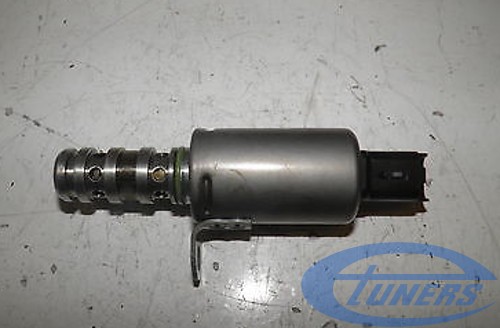
cam timing solenoid, contaminated with engine oil residues
Problem 1 – Oil leaks from oil rings and the camshaft’s end
The camshaft has oil rings at its end to make sure that the oil goes through it and on to the cam phaser. If the oil rings get damaged, the oil leaks. Pressure drops before reaching the cam phaser. This is what happened in the following photo.
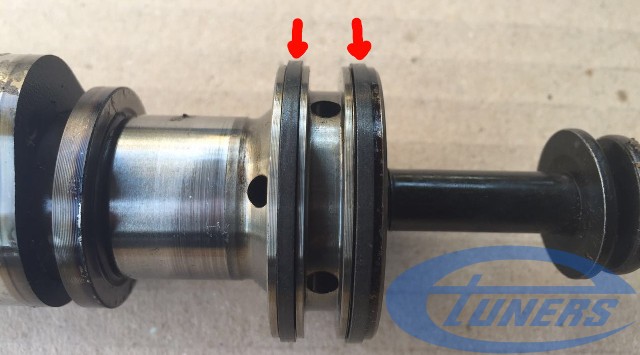
THP (Prince) engine cam shaft end with worn THP (Prince) engine cam shaft end with worn oil rings. These ones had been leaking oil, causing all sorts of problems

THP (Prince) engine cam shaft, noting position of the oil rings
Problem 2 – Stuck cam phaser mechanism
The adjusting mechanism itself can get stuck. Or if the spring inside it weakens, it can start misbehaving.
Potential fault codes caused by these problems
- System too lean
- System too rich
- Both of the above at the same time
- Super-knocking and misfires
- Excessive fuel consumption together with crazy fuel trim values
- Erratic acceleration and torque loss
How to fix them
It is always a good idea to check engine oil pressure, before touching any of the above components. If there is insufficient oil pressure it can be the root cause of all these problems, without any parts being at fault.
Otherwise, the only way to fix these problems is to inspect each individual part first and then start replacing them:
- The cam oil control solenoid
- The cam shaft oil rings
- The cam phaser
Many thanks to Khaled for figuring out this crazy problem!
